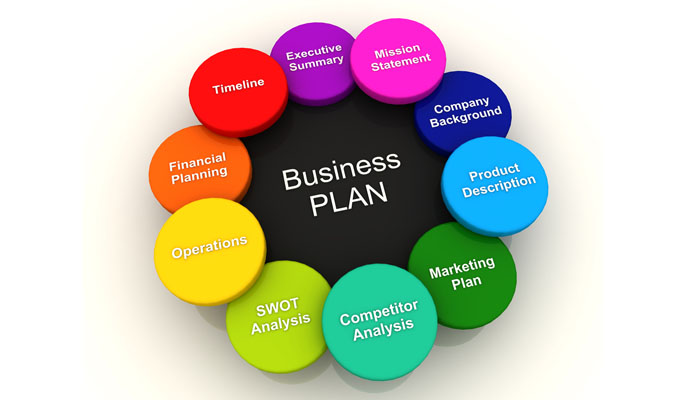
“A JOURNEY of a thousand miles begins with one small step”, goes a Chinese proverb.
BY Clive Mphambela
However, in finance, applicable as this may be, one would be correct to say that starting a business without a business plan is like setting out on a journey from the middle of nowhere with neither map nor supplies to see you through the journey, and hoping to find a specific location that you have never been to.
You may have an idea where you want to go, but definitely, without a plan, you have no idea of what direction to take or what supplies you will need along the way.
Journeying without a guiding map, is it wise?
As a matter of fact, most of us, entrepreneurs, do exactly that. We set out on a journey in business, without a plan and inevitably we, as a result, set ourselves up for failure.
Having a brilliant business idea on its own and having the courage to go after it are tragically not enough determinants of success in business.
There are thousands upon thousands of small businesses that have failed, for the simple reason that they have lacked the ability and or discipline to lay out the strong foundation of a successful business enterprise; that is a well thought out and laid out business plan.
- Chamisa under fire over US$120K donation
- Mavhunga puts DeMbare into Chibuku quarterfinals
- Pension funds bet on Cabora Bassa oilfields
- Councils defy govt fire tender directive
Keep Reading
What are the key elements in a bankable business plan document?
A bankable business plan should read like a very good and compelling story and should answer a few basic but fundamental questions.
It must capture the imagination of an investor or lender by addressing the what? for who? why? how? when? and by whom? questions about your business.
What do you want to do and what do you want to achieve? -What is the product or service that you are bringing onto the market? What is your business case?
To who are those products or services going to appeal? Describe clearly your target market? Define your competition accurately if there is competion?
Why are you deciding to get into business? What is your motivation? Why do you think the product will be successful? What is your unique value proposition?
How do you want to do it? Through what structures and mechanisms and channels will you deliver the product or service to your chosen market? What resources will be required to achieve all of the above? These will be mostly financial resources, but will also include equipment, people and other resources that you will need to execute the plan.
When will you act on and do certain things to see your business idea through? You must give specific details on the timelines for achieving each of the various elements of the business plan.
By whom? Specify the people who will execute various elements of the business plan so that the laid out objectives are achieved and there is clear accountability in your plan.
What, therefore, are the key pillars of a bankable business plan?
From the above it is clear that while there is no single rule about how and in what exact order the above questions should be answered, the general rule is that a business plan should cover three main elements or pillars.
The following ideas are perhaps the most important that a bankable business plan should bring out. All of them are about making money.
The business plan should be very precise about what the value proposition of the business is. It must outline an understandable business model and the first two pillars lead to a detailed financial plan that is consistent with both the value proposition and the business model.
The value proposition — The business plan must outline a very clear value proposition. What is the product or service that you are bringing into the market and what are the unique selling points that you have to make it a success.
This will tell the readers of your plan and also convince yourself as the entrepreneur that this thing will work for sure.
The value proposition tells the banker or investor, why you believe that the business will actually make money?
The business model — How will your product service, etc, be delivered? How do you envisage the business to work functionally? This is the nuts and bolts of your business.
You must demonstrate that you understand your business model because it is the business model will tell the banker how you will make money?
The financial plan — This is the picture that shows the colour of your money. How much money will be required for setting up? How will this money be sourced and acquired? Who will provide what resources? At what cost will these resources be obtained? What assets the business will purchase and use to generate sales. How much revenue or cash flows will be generated? What will be the profitability of the business over various time periods? Amongst a host of other pertinent questions.
Do not lose sight of the primary purpose of a business plan?
The primary purpose of the business plan is to guide you in successfully setting up and operating your small-and-medium enterprise business.
Preparing a written plan will force you to consider all aspects of your business enabling you to confront any problems that the plan will highlight whilst it is still on paper.
By actively thinking through and anticipating problems before they arise, you will stand better when you roll out the business and you will be on your way to becoming a successful business owner.
The basic fact is this: Your business plan is literally your roadmap to your success. Any road will take your business somewhere, but only a well-executed business plan will help you take your business exactly where you want it to go.
No matter how small or how large your business, you have got to aggressively plan the work —and then aggressively work the plan.
Having covered what a business plan should achieve, next week, we will discuss the basic chapters of a bankable business plan proposal.
Clive Mphambela is a banker. He writes in his capacity as the advocacy Officer for the Bankers Association of Zimbabwe. BAZ expressly invites other stakeholders to give their valuable comments and feedback related to this article to him on [email protected] or on numbers 04-744686, 0772206913












